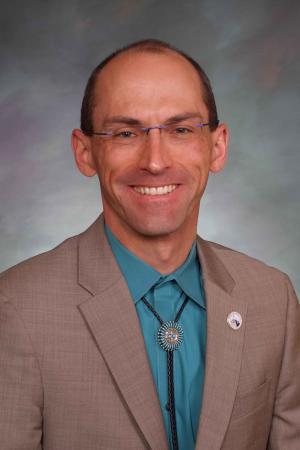by Kaley Day

Colorado’s 2022 legislative session came to a close on May 11th. In a year where continued COVID recovery and an upcoming midterm election loomed, legislators across the aisle came together and championed efforts to advance inclusion, options, and services for individuals with disabilities. Thanks to the exhaustive work of self-advocates, families, community advocates and policymakers alike, five key bills made their way to the governor’s desk and will be highlighted below.
[Read more…] about Disability Policy Marches OnLegislative Wins and a Brighter Future
By Kaley Day and the Arc of Colorado

The 2021 Colorado legislative session began with uncertainty. Amid COVID protocols that required distancing and virtual testimony, economic concerns, and fear that any bill with a fiscal note may not make it to the governor’s desk, advocates and community members were unsure how far their efforts to promote legislation for the disability community would go. In the end there was cause for celebration as the session closed officially on June 8th and the state saw major legislation, some years and decades in the making, passed in order to support and advance the rights of Coloradoans with disabilities.
[Read more…] about Legislative Wins and a Brighter FuturePriorities: The COVID-19 Vaccine
An Interview With Kaley Day

Nearly one year after COVID-19 changed our world and impacted lives globally, the release of two FDA-approved vaccines has offered hope to many. For Colorado’s intellectual and developmental disability community, the relief offered by the vaccine has become imperative to a population more impacted by social isolation, where the function of essential services and supports has changed, and many live with co-occurring or underlying conditions. In these interviews, AdvocacyDenver seeks to understand the development of Colorado’s vaccine priority schedule, along with the perspective of advocates and family members.
[Read more…] about Priorities: The COVID-19 VaccineHouse Bill Aims to Add Special Education Requirements to Educator License
Interview by Sarah Havlicek

Bri Buentello, House District 19
House Bill 20-1128, Sponsored by Representatives Bri Buentello
(HD-47) and James Wilson (HD-60) in the House and Senators Rachel Zenzinger (SD-19) and Kevin Priola (SD-25) in the Senate, aims to add the requirement of at least 10 hours of professional development regarding the laws and practices of educating students with disabilities to educator licensing for teachers, special services providers, principals, and administrators.
The bill recently passed out of the House of Representatives and was introduced in the Senate and assigned to the Education committee. In an interview with Sarah Havlicek, Representative Buentello, a special education teacher herself, explains the necessity of the bill and ways it will improve special education practices for diverse learners in the state of Colorado.
[Read more…] about House Bill Aims to Add Special Education Requirements to Educator LicenseDenver’s Online 2020 Census Poses Challenges for High Response
An Interview with Catherine Strode

Conducting a complete enumeration of the residents of the country is one of the few functions of the government written in the Constitution. The first Census, conducted in 1790 under Thomas Jefferson, has evolved over the centuries from door to door inquiries to nationwide mailings.
In March of 2020 however, the Census in Denver is going ‘high- tech’. This new process poses challenges for Denver’s Census staff who is dedicated to making sure everyone is counted. They say this development, along with Trump administration polices, will lower Denver’s Census response rate.
[Read more…] about Denver’s Online 2020 Census Poses Challenges for High ResponseIntroducing Jane Walsh, Senior Deputy District Attorney, Denver District Attorney’s Office
An Interview with Catherine Strode

On July 1, a state law went into effect making it a class 6 felony to unlawfully confine an at-risk adult and a class 1 misdemeanor to abandon an at-risk adult. This law, enacting penalties for persons convicted of at-risk adult abuse crimes, was the result of hard-fought lobbying efforts of advocates within the Colorado disability community. Leading their fight for legislative change was Denver’s Director of Elder and At-Risk Protection, Jane Walsh. She says this law is a tool to get more abuse crimes reported and prosecuted.
Jane Walsh has been prosecuting crimes against at-risk adults since coming to the United States in 2007. Originally from Scotland, she has practiced law under three different legal systems to defend her passion. That passion is fighting inequities for vulnerable populations and protecting their right to live full and respectful lives.
[Read more…] about Introducing Jane Walsh, Senior Deputy District Attorney, Denver District Attorney’s OfficeNational Arc Fights Court Decision to Invalidate the ACA
An Interview with Catherine Strode

The national Arc is fighting a 2018 ruling in a Texas U.S. District Court that determined the Affordable Care Act (ACA) unconstitutional. That case is now pending in the U.S. Court of Appeals for the Fifth Circuit. The Arc has joined 14 other national organizations representing people with disabilities in filing an amicus brief appealing to reverse the lower court’s decision.
The Chief Executive Officer of the Arc of the United States, Peter Berns, has called the lower court’s decision “an extraordinary threat” for people with disabilities and their families. He says if the ACA is taken off the books, it will set the advocacy efforts for individuals with intellectual or developmental disabilities (IDD) back 70 years.
Competency Bill Will Implement Mental Health Consent Decree Orders
An Interview with Catherine Strode

Disability advocates and the state of Colorado reached agreement last month in a legal battle over the long wait times for court-ordered mental health competency proceedings. A Consent Decree was entered into as a result of a lawsuit against the state by Disability Law Colorado. A bill introduced this Session creates alignment with the Consent Decree’s competency proceeding requirements and helps the state avoid violations and penalties.
Entitled, “Actions Related to Competency To Proceed,” Senate Bill 19-223, is a revised version of a competency bill that failed to pass in the 2018 Session. The bill’s sponsor, State Representative Mike Weissman, says the 2019 version has bipartisan support and has been worked on extensively over the past year. He is optimistic that it will win passage this year.
Bill Enacts Penalties Against At-Risk Adult Abuse Crimes
An Interview with Catherine Strode

Last year, nearly one thousand cases of abuse against at-risk adults were reported in Colorado. In Denver, police report over a 200% increase in these types of crimes. Adult Protective Services estimate for every report of abuse against an at-risk adult, many more cases go unreported.
A Colorado legislator has introduced a bill to strengthen efforts to decrease crimes against at-risk adults. Senator Jessie Danielson is sponsoring Senate Bill 19-172 which makes it a Class 6 Felony to unlawfully confine an at-risk adult and a Class 1 Misdemeanor to unlawfully abandon an at-risk adult. Senator Danielson says this bill will cut down on this type of abuse of the most vulnerable Coloradans.
Mental Health Competency Addressed In Criminal Justice Bills
An Interview with Catherine Strode

It is estimated that the incidence of mental illness among prison inmates is three times more prevalent than in the general population. Nationally, more than a third of inmates are reported to suffer from some form of mental illness. Colorado statistics reflect nearly 40 per cent of the state’s inmates are in need of mental health intervention. A package of bills is being introduced this Session to address the issue of competency for individuals with mental illness in the criminal justice system.
Senator Pete Lee, Chair of the Senate Judiciary Committee, has been one of the architects of the bills. He says the goal is to establish a protocol where individuals in need of mental health care are identified and expediently moved out of the criminal justice system into community treatment care programs.